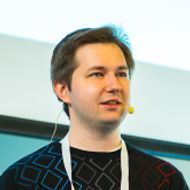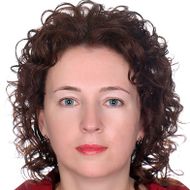‘Borders Between Countries Are Becoming Blurred Thanks to Online Communication’

Professor Oleg Melnikov is among the international professors invited to work remotely with HSE University’s students this academic year. He lives in California, runs the Data Science department at a company in Palo Alto, and teaches at Stanford and other universities in the United States. At HSE University he teaches a course on machine learning for the students of the Faculty of Computer Science and the International College of Economics and Finance (ICEF), as well as a university-wide optional course, ‘Machine Learning in Python’. He spoke about his work in an interview with the HSE News Service.
Oleg, where did you receive your education? What are you doing now? What are your research interests?
I got my degree in mathematics, finance, and computer science in Los Angeles and my PhD in statistics in Texas. Now I live in Silicon Valley, California.
Oleg Melnikov
In my main job, I run the Data Science department at ShareThis Inc, based in Palo Alto. We build machine learning models to classify Internet users that the advertising industry is interested in. This is basically working with hundreds of terabytes of natural language data.
For ten years now, in my spare time, I have been developing and teaching courses in Machine Learning, Statistics, Neural Networks, Data Science, NLP and Python at Stanford, Berkeley, Cornell, the University of Chicago, the University of Washington, Johns Hopkins, and other American universities. For me it is not only a hobby, but also self-development, an opportunity to share knowledge and experience with students and assistants.
This year I started teaching at one of Russia’s best universities — HSE University. Here I am also getting acquainted with an educational system that is new to me. I consider myself very lucky.
How did your collaboration with HSE University begin?
I had considered the possibility of teaching in Russia before, communicating with colleagues from Russian universities. Now it has become much easier to realise this idea thanks to the development of online education during the COVID-19 pandemic.
I applied to the Faculty of Computer Science at HSE University and Vladimir Podolskii, Evgeny Sokolov, and Tamara Voznesenskaya immediately responded to my proposal. We organised several video meetings, where they were interested in my motivation, qualifications, and opportunities, and discussed possible options for collaboration. I was able to get through this stage surprisingly quickly. Now I work under an employment contract, which was easy to arrange.

Evgeny Sokolov, Deputy Head of Big Data and Information Retrieval School, Faculty of Computer Science, HSE University
Professor Oleg Melnikov approached us about a year ago, asking if we had a need for visiting scholars. He already had a lot of experience teaching at universities in the U.S., but now he wanted to see ‘from the inside’ how education works in Russia. Of course, we were interested, and we even discussed the possibility of Oleg coming to Moscow for a semester. But then, once the pandemic began, we decided to arrange remote teaching.
It is certainly an interesting experience for us. For example, Oleg builds his course in a blended format, uses online materials, and prepares a large amount of questions for automatic student testing. The way in which he works with students in his classes is very organized and well-structured. We have professors who assist with Oleg's courses, and I think they have learned a lot from him.
What classes do you teach at HSE University? In your opinion, how are your courses unique and how are they useful to students?
I'm just now finishing up a first-semester English language course in machine learning for students in the double degree bachelor’s programme in ‘Data Science and Business Analytics’ in the Faculty of Computer Science and the double degree programme in Economics at ICEF.
I taught this course last year at Stanford. It is based on the very famous textbook Introduction to Statistical Learning (ISLR) and Elements of Statistical Learning (ESL) by Robert Tibshirani and Trevor Hastie from Stanford, with whom I was fortunate to collaborate. Students are exposed not only to new material, but also to the LMS systems that I use in my work as a teacher in the United States — Canvas LMS, PIazza LMS, Google Colab, and others.
Another course I teach is a university-wide elective. It is devoted to machine learning in Python and is taught in Russian.
How unusual did HSE University’s students find your approach to organising classes?
Of course, many students were new to some of the methods that are often used in the U.S. educational system. These are grading on a curve (an unusual method of assessment for Russia), weekly, individual and automated tests through Canvas, and, of course, the Canvas and Piazza systems themselves, which I have been using for many years. I am pleased that I am not only sharing my knowledge with students, but also introducing them to other teaching approaches.
Many of my Russian assistants are also learning new systems and teaching methods that will help them create their own courses in the future. By the way, I meet with my wonderful team of fellow professors and teaching assistants on a weekly basis through Zoom, where we discuss current work and plan tasks for the coming weeks and months. As they say, one head is good, but fourteen is even better. They are all great guys and a pleasure to work with.
I am also very inspired by the support from the HSE University administration and my colleagues, who are responsible for organising my work. I have the opportunity to interact with outstanding Russian professors. It seems that at no other university have I worked with so many people at the same time. Absolutely everyone is very friendly and always ready to help with advice and effort.
What are your plans for further cooperation with HSE University?
We are witnessing amazing changes in education, where borders between countries are becoming blurred thanks to online communication between students and teachers. So there are a lot of different ideas for collaboration and hopefully it will only get stronger every year.
For example, based on the material created with automated and individual forms of student assessment, we can significantly increase the scale of my course without increasing the number of assistants. We can also involve students in interesting projects in machine learning with companies in the U.S., where they will gain additional experience, including research and practise their English. We also plan to invite prominent researchers from the U.S. to conferences and presentations at HSE University.

Tamara Voznesenskaya, First Deputy Dean, Faculty of Computer Science, HSE University
Professor Oleg Melnikov had the difficult task of combining machine learning course materials from the London School of Economics and the materials that are traditionally used in the machine learning course offered by the Faculty of Computer Science. We were lucky that not only does he know the London course well, but he also worked with the authors of the textbook and has a good sense of what is written between the lines. We are also happy to have the opportunity to explore Stanford's teaching traditions in action and to take a detached view of HSE University and the Faculty from the outside. We are learning a lot from each other. In the second semester, Oleg is continuing to teach his course in English. I hope our cooperation will only strengthen and expand in the coming academic year.
See also:
HSE Scientists Optimise Training of Generative Flow Networks
Researchers at the HSE Faculty of Computer Science have optimised the training method for generative flow neural networks to handle unstructured tasks, which could make the search for new drugs more efficient. The results of their work were presented at ICLR 2025, one of the world’s leading conferences on machine learning. The paper is available at Arxiv.org.
Quantity over Quality: How Publication Activity Leads to Crisis
Participants of the 4th Fall into ML conference at HSE University held a discussion titled ‘Academia in Crisis: What Does the Future Hold?’ In particular, they examined why the number of scientific publications continues to grow, what the quality of these papers is, what expectations should be placed on researchers, and what role artificial intelligence plays in preparing academic articles.
Start of a Long Journey: Young HSE Scientists Contribute to Learning Theory at COLT 2025
Participation in high-level international events is crucial for the professional development of researchers starting their career in science. It provides an opportunity to exchange ideas, create promising teams, and make important connections. This summer, Denis Ryapolov and Askar Tsyganov, students of the Applied Mathematics and Computer Science programme and staff of the AI and Digital Sciences Institute at the Faculty of Computer Science of HSE University, attended the prestigious international Conference on Learning Theory, COLT 2025, which was held in Lyon, France. In an interview, they shared their experiences and impressions from the trip.
Early-Career Researchers Discuss Cooperation between Russia and Arab States
HSE University has hosted a conference entitled ‘Russia—The Arab World: Digital Future and Youth Cooperation,’ organised by the Faculty of World Economy and International Affairs (WEIA). The meeting took place in the run-up to the first Russian–Arab summit, due to be held in Moscow on October 15, 2025.
From Neural Networks to Stock Markets: Advancing Computer Science Research at HSE University in Nizhny Novgorod
The International Laboratory of Algorithms and Technologies for Network Analysis (LATNA), established in 2011 at HSE University in Nizhny Novgorod, conducts a wide range of fundamental and applied research, including joint projects with large companies: Sberbank, Yandex, and other leaders of the IT industry. The methods developed by the university's researchers not only enrich science, but also make it possible to improve the work of transport companies and conduct medical and genetic research more successfully. HSE News Service discussed work of the laboratory with its head, Professor Valery Kalyagin.
Analysing Genetic Information Can Help Prevent Complications after Myocardial Infarction
Researchers at HSE University have developed a machine learning (ML) model capable of predicting the risk of complications—major adverse cardiac events—in patients following a myocardial infarction. For the first time, the model incorporates genetic data, enabling a more accurate assessment of the risk of long-term complications. The study has been published in Frontiers in Medicine.
HSE Team Takes First Place in RuCode Algorithmic Programming Championship
On October 20, 2024, the final round of the RuCode Algorithmic Programming Championship took place, setting a new record in the Russian Book of Records as the ‘Largest Competitive Programming Event.’ The event, held simultaneously across 24 locations, hosted 1,450 participants divided into 500 teams. The overall winner of the senior team division was the M.O.S.C.O.W. team from the HSE Faculty of Computer Science (FCS).
HSE Teachers Awarded Yandex ML Prize
The awards ceremony for the international Yandex ML Prize was held in Moscow. This year, all three winners in the ‘ML Educators’ category were HSE faculty members—Evgeny Sokolov, Associate Professor and Head of the Big Data and Information Retrieval School, Anton Konushin, Associate Professor at the Faculty of Computer Science, and Aleksei Shpilman, Associate Professor at the Department of Informatics at HSE’s St Petersburg School of Physics, Mathematics, and Computer Science.
‘We Bring Together the Best Russian Scientists and AI Researchers at HSE University Site’
On October 25–26, 2024, HSE University’s AI and Digital Science Institute and the AI Research Centre hold the Fall into ML 2024 conference in Moscow. This year’s event will focus on the prospects in development of fundamental artificial intelligence, with SBER as its conference title partner.
Researchers at HSE in St Petersburg Develop Superior Machine Learning Model for Determining Text Topics
Topic models are machine learning algorithms designed to analyse large text collections based on their topics. Scientists at HSE Campus in St Petersburg compared five topic models to determine which ones performed better. Two models, including GLDAW developed by the Laboratory for Social and Cognitive Informatics at HSE Campus in St Petersburg, made the lowest number of errors. The paper has been published in PeerJ Computer Science.


